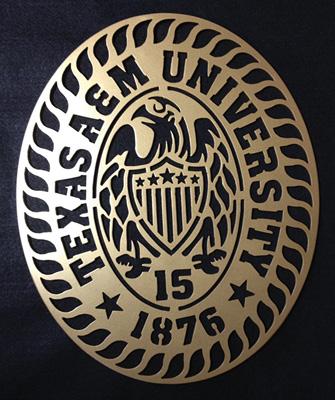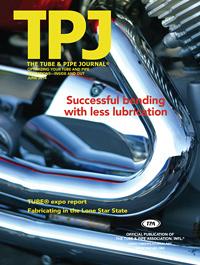- FMA
- The Fabricator
- FABTECH
- Canadian Metalworking
Categories
- Additive Manufacturing
- Aluminum Welding
- Arc Welding
- Assembly and Joining
- Automation and Robotics
- Bending and Forming
- Consumables
- Cutting and Weld Prep
- Electric Vehicles
- En Español
- Finishing
- Hydroforming
- Laser Cutting
- Laser Welding
- Machining
- Manufacturing Software
- Materials Handling
- Metals/Materials
- Oxyfuel Cutting
- Plasma Cutting
- Power Tools
- Punching and Other Holemaking
- Roll Forming
- Safety
- Sawing
- Shearing
- Shop Management
- Testing and Measuring
- Tube and Pipe Fabrication
- Tube and Pipe Production
- Waterjet Cutting
Industry Directory
Webcasts
Podcasts
FAB 40
Advertise
Subscribe
Account Login
Search
Fabricator/entrepreneur makes the most of everything Texas has to offer
Former Aggie serves three big markets, many niches
- By Eric Lundin
- June 16, 2014
- Article
- Shop Management
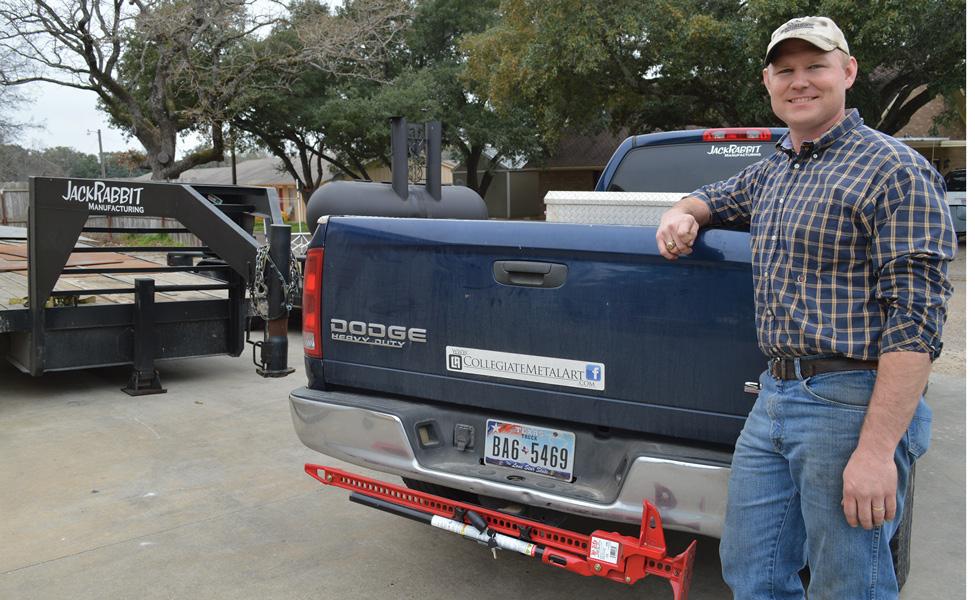
Entrepreneur and fabricator Devin Gerland, founder of JackRabbit Mfg. and Collegiate Metal Art, shows off the company’s namesake product. Storing a Hi-Lift® type of jack was a small problem until Gerland devised a bracket that mounts the jack to the truck’s trailer hitch receiver.
The sign on the building reads JackRabbit Manufacturing; the company slogan is “Ready When You Are”; and if you need some fabrication work done, you’ll find out that the staff at JackRabbit, Bryan, Texas, is ready like the sign says and quick like a jackrabbit. Founded in 2011 by native Texan Devin Gerland, JackRabbit relies heavily on a CNC plasma cutting table; several manual tools (chop saw, drill press, and so on); and some welding equipment for fabricating sheet, plate, tube, and pipe. The company isn’t too specialized, which means it’s usually ready to take any fabrication project that comes through the front door. One-offs or a series, mild or stainless steel, subcontracted or not, JackRabbit is sustained by a steady stream of projects for a variety of applications and industries.
This isn’t to say that Gerland is just sitting and waiting for work. He’s a go-getter. He has worked for three manufacturers in the area, so he has a network of companies he calls on frequently, and he’s always looking for new opportunities in new markets. He’s also an innovator who has developed a couple of products and has a couple more in the works, hoping that one of them takes off in a big way.
Origins
Oil has been synonymous with Texas for decades. The first big discovery in the state was in Spindletop (near Beaumont) in 1901. At the time the state was dominated by agriculture and it had no metropolitan areas. The discovery at Spindletop led to more successful wells and ushered in the Texas oil boom, a decades-long period of development and rapid industrialization. Quoting a price for crude oil is always a reminder of the state’s importance in this industry—one of the two benchmark prices is West Texas Intermediate.
That’s history, but black gold’s importance in Texas hasn’t faded over the decades. In 2013 oil wells in this state pumped 2.6 million barrels of oil per day (38 percent of U.S. production), and its refineries processed about 5 million barrels of oil per day.
If you work in manufacturing in Texas long enough, chances are good you’ll manufacture something for the oil industry. This is actually where Gerland started, working as an engineer for a company that made the pumps and agitation units used to fracture shale formations, allowing the oil to be pumped to the surface more easily. It was a small outfit, so Gerland wasn’t just a face in the crowd. He was half of the crowd. The company had just two engineers.
“It was a great experience,” he said. “I dealt with vendors and customers, made the part drawings, helped out with manufacturing issues, and went to the field to commission the units. I’d cut a purchase order for a $150,000 engine,” he said, referring to the 2,250-HP monster used to power the unit. “Who gets to do that at his first job out of college?”
Gerland still does some work for the oil industry, but it’s not nearly that intense. His former employer and a few others rely on JackRabbit for all sorts of miscellaneous items, such as brackets, gussets, pipe supports, engine mounts, ladders, stairs, and handrails (see Figure 1). It’s good work, but Gerland is finding out that the industry doesn’t need an endless supply of them.
“Eagle Ford is full of fracking units—that market is becoming saturated,” Gerland said, referring to the shale deposit in southern Texas.
No matter. Oil isn’t the only game in this state. Texans love their automobiles. Not just any automobiles. Countless pickup trucks, four-wheel drives, and sport utility vehicles crowd Texas highways and byways. It’s easy to see why. Texas terrain is varied, and quite a bit of it is rugged and unforgiving, from the mountains and deserts in the west to Texas Hill Country in the south-central region. The Big Three automakers estimate that about 20 percent of full-size pickup trucks are sold in Texas, and each makes a Texas-themed version.
Like many of these vehicles, the pickup truck Gerland uses for work is outfitted with an indispensable accessory, a Hi-Lift® jack. Faster and easier to use than a standard automobile jack, it’s handy for nearly every utility-type vehicle. The drawback is that, when it’s not in use, it’s usually in the way. This means that the jack is a minor nuisance most of the time, and Gerland figured that he needed to do something about it. He dreamed up a bracket that attaches the jack to the truck’s trailer hitch receiver, which inspired the company’s name. To prevent theft, Gerland incorporated a lock.
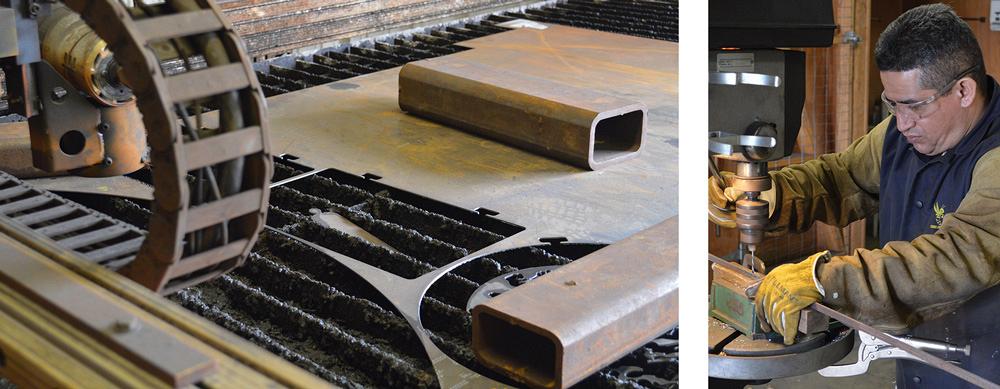
Figure 1
Like many small fabrication shops, JackRabbit Mfg. does quite a bit of work with manual tools (left). The shop’s workhorse is a CNC plasma machine (right). Company owner Devin Gerland, who doubles as the IT department, rigged up an old laptop computer to run the plasma cutter. The system is networked to the office computer, so even complex and artistic projects can be cut with ease.
Artwork on the Side
JackRabbit isn’t focused solely on heavy plate fabrication for industrial applications. The company has done a few projects on the culinary side, such as mobile meat smokers, barbecue pits, and crawfish fryers. Gerland even capitalized on the jalapeño popper fad by designing a stainless steel plate for grilling them at home.
The company has fabricated its share of handrails, some plain and some decorative, and it has made more than a few gates and grates for various applications. Gerland also has made signs for businesses, churches, ranches, and so on, expressing some of the artistic capability that CNC provides. He also takes any little fabrication projects that show up.
He also does some artistic work. A former Aggie, Gerland thought he’d try making the school’s ring crest out of steel and have it powder-coated in the school’s color. He had no idea how to market his idea, at least not legally, so he started by contacting the university.
“You learn new things when you enter new markets,” Gerland said, making an extreme understatement. He learned that universities don’t commission the coffee mugs, T-shirts, bumper stickers, and dozens of other items adorned with their logos; instead, the university’s marketing staff waits for the phone to ring. Anyone with a new product to sell and the means to produce it is welcome to call, but the approval process is a lengthy grind. Universities need to be sure that the supplier is reputable and reliable. Good workmanship is a credit to the school’s image, and timely deliveries are necessary to make it worthwhile (the school’s take is usually 10 to 15 percent). Suppliers have to jump through more than a few hoops to get approved.
“It’s like getting a home loan,” Gerland said, referring to the stacks of paperwork required. Despite the red tape, Gerland stuck with it, and now is licensed to make the product (see Figure 2).
Accent on Agriculture
As the number of oilfield projects slowed down in 2013, Gerland ramped up his work in other markets. Some of his latest work is in the agriculture industry, where he’s most comfortable. His grandparents farmed 75 acres near Carmine, Texas; his degree is in agricultural engineering (from the school formerly known as Texas Agricultural and Mechanical University); and he had internships designing and installing pivot irrigation systems before he graduated from college. In addition to doing some work for a couple of OEMs in the ag industry, he has built a few prototype implements of his own design for this market.
Gerland is understandably tight-lipped about the products he has developed, but if the market responds with the “Why-didn’t-I-think-of-that?” reaction that every inventor wants to hear, the products will secure JackRabbit’s revenue stream well into the future.
About the Author

Eric Lundin
2135 Point Blvd
Elgin, IL 60123
815-227-8262
Eric Lundin worked on The Tube & Pipe Journal from 2000 to 2022.
About the Publication
subscribe now
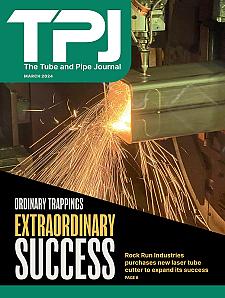
The Tube and Pipe Journal became the first magazine dedicated to serving the metal tube and pipe industry in 1990. Today, it remains the only North American publication devoted to this industry, and it has become the most trusted source of information for tube and pipe professionals.
start your free subscription- Stay connected from anywhere

Easily access valuable industry resources now with full access to the digital edition of The Fabricator.

Easily access valuable industry resources now with full access to the digital edition of The Welder.

Easily access valuable industry resources now with full access to the digital edition of The Tube and Pipe Journal.
- Podcasting
- Podcast:
- The Fabricator Podcast
- Published:
- 04/16/2024
- Running Time:
- 63:29
In this episode of The Fabricator Podcast, Caleb Chamberlain, co-founder and CEO of OSH Cut, discusses his company’s...
- Trending Articles
Team Industries names director of advanced technology and manufacturing

Orbital tube welding webinar to be held April 23
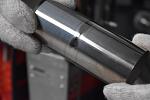
Chain hoist offers 60-ft. remote control range
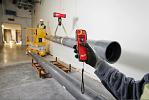
Push-feeding saw station cuts nonferrous metals
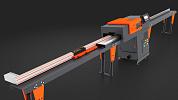
Corrosion-inhibiting coating can be peeled off after use
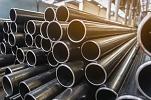
- Industry Events
16th Annual Safety Conference
- April 30 - May 1, 2024
- Elgin,
Pipe and Tube Conference
- May 21 - 22, 2024
- Omaha, NE
World-Class Roll Forming Workshop
- June 5 - 6, 2024
- Louisville, KY
Advanced Laser Application Workshop
- June 25 - 27, 2024
- Novi, MI
























